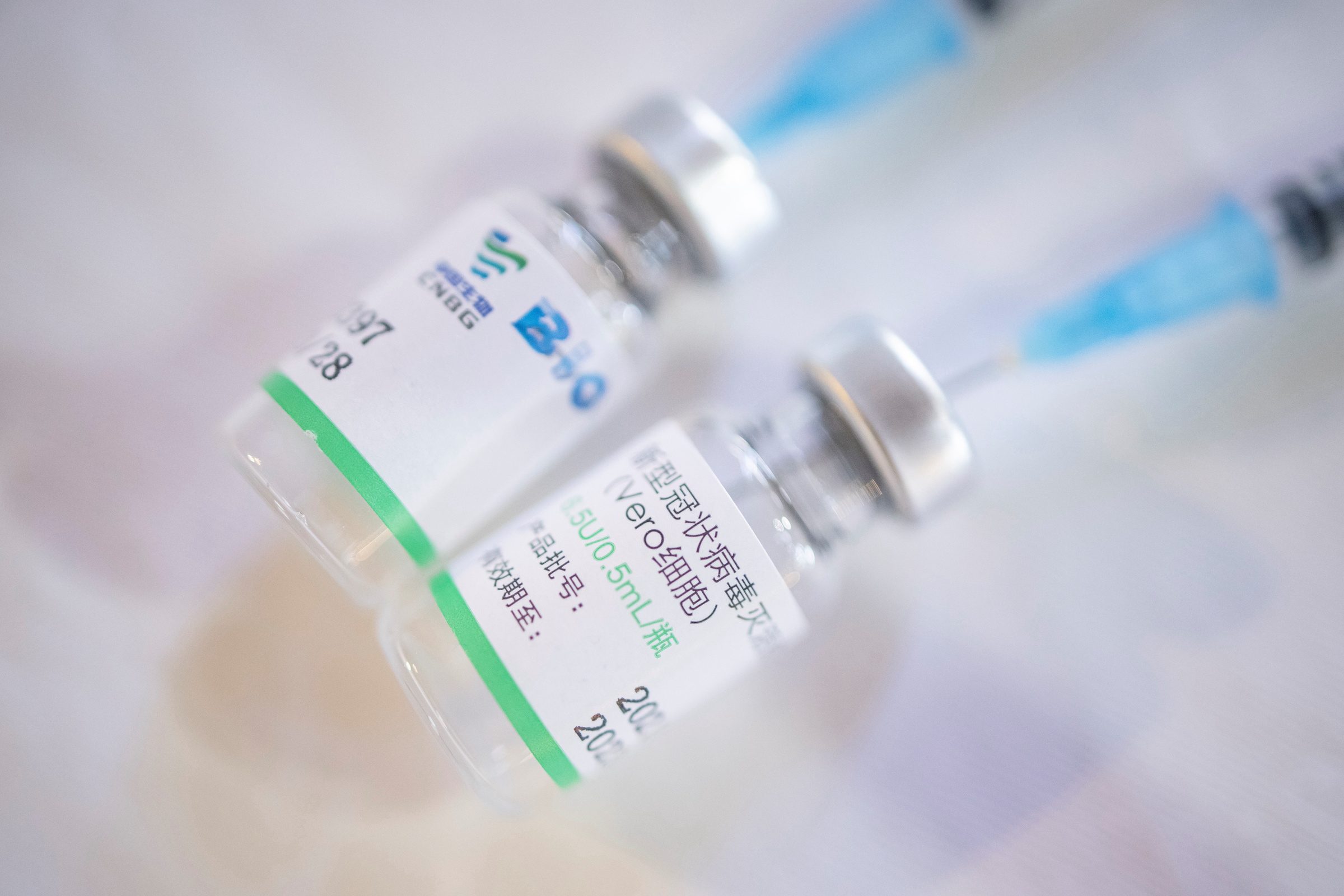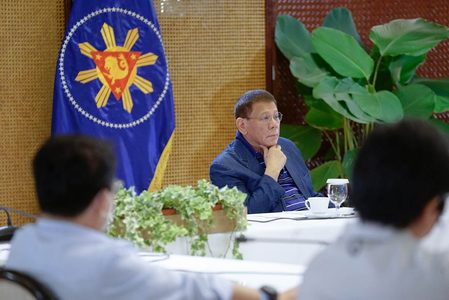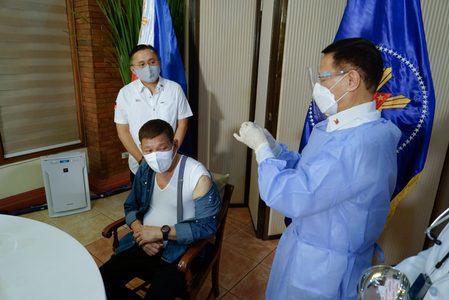SUMMARY
This is AI generated summarization, which may have errors. For context, always refer to the full article.

The Philippine government received over 700,000 doses of Sinopharm’s coronavirus vaccine from China on Friday, August 20.
The first batch of 739,200 doses arrived at the Ninoy Aquino International Airport past 5 pm, while a second shipment is scheduled to arrive on Saturday, August 21, to bring the total to a million doses.
The additional doses come as the number of infections continued to rise in the country, with new cases reaching its highest count in the pandemic so far on August 20.
Chinese Ambassador to the Philippines Huang Xilian said the donated vaccines were part of Beijing’s pledge to “substantively increase” supply in the Philippines. To date, majority of vaccine doses made available to Filipinos in the government’s vaccine drive have been from China.
Like China’s first donation of Sinovac doses, President Rodrigo Duterte had been expected to grace the arrival of Beijing’s latest vaccine delivery but he could not be physically present because he had to preside overa meeting of the government’s coronvirus task force.
Health Secretary Francisco Duque III welcomed the donation with Huang.
Duterte later accepted the vaccines in a virtual call with Huang, saying the Philippines received China’s donation with “high hopes.” He also urged Filipinos to get vaccinated.
The Philippine leader touted the shared doses as a reflection of the “deep, strong relations between the Philippines and China.” Under Duterte’s leadership, Manila has fostered warmer ties with Beijing.
“May I request His Excellency Ambassador Huang Xilian to convey to President Xi Jinping my deepest gratitude and many, many thanks for China’s attitude to us. That even though in these challenging times of geopolitics, Philippines will stay neutral and remain true to what we have guaranteed China at least during my term,” Duterte said.
Duterte had often expressed preference for Sinopharm’s vaccine, and on several occasions shared his heartfelt gratitude to Chinese President Xi Jinping as well as his “great debt” to China.
So far, the Philippines has not procured any Sipopharm vaccines, nor has it entered formal negotiations to buy them. The government has secured about 140 million vaccines from Sinovac, Pfizer, Moderna, Johnson & Johnson, AstraZeneca, Novavax, and the Gamaleya Research Institute.
Despite this, Sinopharm had been used in the Philippines as early as mid-2020 by the President’s close-in security, as well as some lawmakers, and Cabinet officials.
Earlier this year, Duterte had also received Sinopharm’s vaccine himself, despite the lack of the required emergency use authorization (EUAs) from the Philippines’ Food and Drug Administration (FDA).
Regulatory approvals for the use of the vaccine – either through a compassionate special permit or emergency approval granted for donated doses – were issued only weeks later after their initial use by government officials, including Duterte, following backlash from citizens and the medical community.
Many critics said the President and government officials had cut corners while his administration told regular Filipinos they couldn’t choose their vaccine.
The FDA has since issued EUAs for donated Sinopharm doses, including those earlier manufactured and donated by the United Arab Emirates (UAE).
China’s donation of 1 million Sinopharm doses brings its total donation to a little over 2 million doses. This includes its earlier donation of 1 million Sinovac doses and 1,000 Sinopharm doses.
Aside from China, the Philippines has received over 6 million vaccine doses from the United States, 1.1 million AstraZeneca doses from Japan, 415,040 AstraZeneca doses from the United Kingdom, and 100,000 Sinopharm doses form the UAE. – Rappler.com
Add a comment
How does this make you feel?







There are no comments yet. Add your comment to start the conversation.